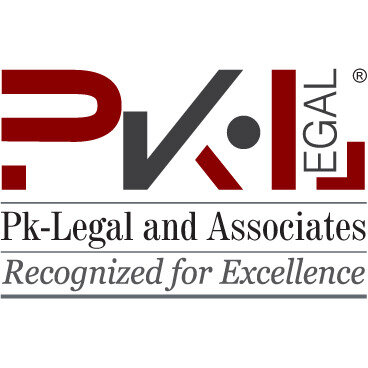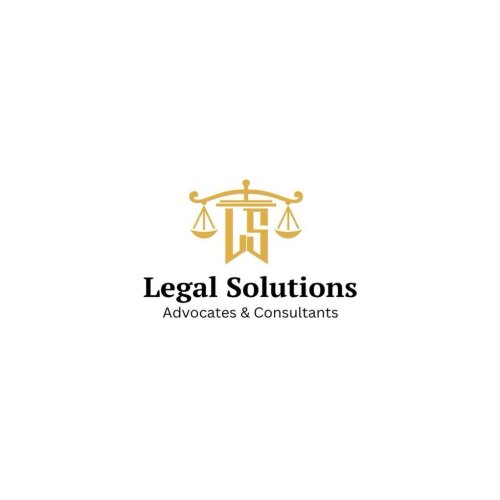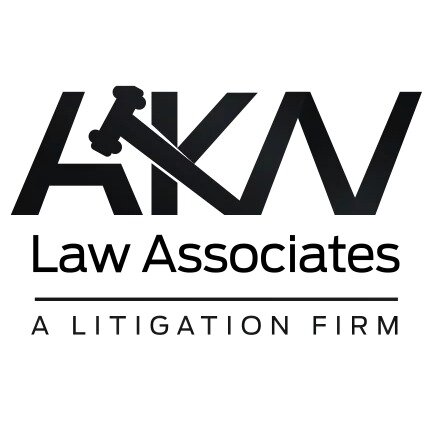Best Water Law Lawyers in Rawalpindi
Share your needs with us, get contacted by law firms.
Free. Takes 2 min.
List of the best lawyers in Rawalpindi, Pakistan
About Water Law in Rawalpindi, Pakistan
Water Law in Rawalpindi, Pakistan, refers to the body of legal rules, policies, and practices that regulate the ownership, use, and management of water resources. With the city experiencing rapid urban development and growing population, issues concerning water supply, distribution, sanitation, and environmental impact have become increasingly significant. Water Law covers a range of matters including allocation of water rights, dispute resolution between users, pollution control, conservation of water bodies, and regulation of municipal water services. The legal framework involves both federal and provincial statutes as well as local bylaws tailored to meet the unique needs of Rawalpindi and its surrounding areas.
Why You May Need a Lawyer
Legal issues related to water can appear in many forms, often requiring professional guidance from an experienced Water Law lawyer. You may need legal help if you are:
- Engaged in a conflict with neighbors, businesses, or housing societies over water distribution or contamination.
- A landowner or developer seeking legal clearance for groundwater extraction, borewell installation, or irrigation projects.
- Dealing with regulatory violations or receiving complaints from the Water and Sanitation Agency (WASA) or local authorities.
- Affected by industrial or commercial activity polluting water sources in your area.
- Facing eviction or demolition notices due to encroachment on water channels, drains, or sewer lines.
- Involved in disputes arising from water utility billing, supply interruptions, or poor water quality from municipal sources.
In these and similar situations, a Water Law expert can represent your interests, ensure compliance with regulations, and protect your rights.
Local Laws Overview
Rawalpindi's Water Law is shaped by both federal acts and provincial legislation under the Punjab Government, with a significant role played by local authorities such as WASA. Key laws and regulations include:
- Punajb Water Act - Regulates the extraction, use, and conservation of water resources across Punjab, including Rawalpindi.
- Punjab Environmental Protection Act 1997 - Addresses pollution control, including water pollution from domestic, industrial, or agricultural activities.
- WASA Water Bye-Laws - Set forth rules related to connection, supply, and billing of municipal water, as well as sealing of illegal connections.
- Building and Development Regulations - Govern rainwater harvesting, sewage disposal, and the safeguarding of watercourses in real estate or construction projects.
- Canal and Drainage Act 1873 (amended) - Controls irrigation and drainage practices, especially relevant for rural peripheries of Rawalpindi.
Violations can result in penalties, disconnection of services, or legal proceedings. Legal compliance is crucial for both individuals and organizations involved in water use or infrastructure projects.
Frequently Asked Questions
What are my legal rights to water as a resident of Rawalpindi?
As a resident, you are entitled to reasonable and safe access to municipal water supply as regulated by WASA Rawalpindi, subject to compliance with their byelaws and payment of dues.
Can I drill a borewell on my own property?
Drilling a borewell requires prior approval from the relevant authorities, including WASA or Tehsil Municipal Administration. Unapproved drilling can result in fines or borewell sealing.
What should I do if my water is contaminated or unsafe?
You should immediately complain to WASA or the local municipal office. If the issue is unresolved or poses health risks, legal action may be considered under local and environmental laws.
How do I handle a dispute over water supply with my neighbor?
Attempt informal resolution first. If this fails, legal mechanisms exist through complaints to WASA, municipal authorities, or local courts for mediation and enforcement.
What laws govern water pollution in Rawalpindi?
The Punjab Environmental Protection Act and related regulations cover water pollution, including penalties for discharging hazardous substances into watercourses.
Can my water connection be disconnected without notice?
Disconnection generally requires prior notice, except in cases of illegal connection or gross violation of regulations. You may appeal or challenge unjust disconnection.
What is the process for regularizing an illegal water connection?
Apply to WASA for regularization, pay outstanding dues or fines, and ensure compliance with technical standards. A lawyer can help facilitate this process.
Am I liable if my construction project obstructs a natural drain or canal?
Yes, you are legally required to avoid blocking watercourses. Violations can lead to demolition orders, fines, or criminal liability.
How are water utility charges and bills regulated?
Water tariffs are set by WASA Rawalpindi under provincial oversight, with a defined process for complaint or dispute resolution regarding incorrect billing.
Who can I approach for water supply extension to my area?
You can submit a request to WASA or the Rawalpindi Development Authority. Collective petitions from residents or legal intervention may expedite the process.
Additional Resources
If you need more information or support, these organizations and agencies can help:
- Water and Sanitation Agency (WASA), Rawalpindi - Handles water supply, billing, complaints, and policies.
- Punjab Environmental Protection Agency (EPA) - Addresses pollution and environmental regulations.
- Rawalpindi Development Authority (RDA) - Involved in urban planning and water infrastructure projects.
- Punjab Irrigation Department - Oversees canals, drains, and water resources in rural peripheries.
- District Courts, Rawalpindi - For legal disputes, appeals, and formal litigation.
- Local Lawyers Associations - Can help you find a specialized Water Law advocate.
Next Steps
If you require legal assistance regarding Water Law in Rawalpindi, start by identifying the specific issue you are facing and gathering relevant documents, such as utility bills, property records, or official notices. Consider consulting a lawyer experienced in Water Law to review your situation and advise on possible solutions or legal action. You may also visit or contact relevant government offices like WASA or the EPA to seek initial redress. In case of urgent matters or clear legal violations, file complaints in writing as evidence for potential court proceedings. Remember to comply with all procedural requirements and retain copies of your correspondence. By being proactive and seeking professional advice early, you can protect your rights and resolve water-related issues more effectively.
Lawzana helps you find the best lawyers and law firms in Rawalpindi through a curated and pre-screened list of qualified legal professionals. Our platform offers rankings and detailed profiles of attorneys and law firms, allowing you to compare based on practice areas, including Water Law, experience, and client feedback.
Each profile includes a description of the firm's areas of practice, client reviews, team members and partners, year of establishment, spoken languages, office locations, contact information, social media presence, and any published articles or resources. Most firms on our platform speak English and are experienced in both local and international legal matters.
Get a quote from top-rated law firms in Rawalpindi, Pakistan — quickly, securely, and without unnecessary hassle.
Disclaimer:
The information provided on this page is for general informational purposes only and does not constitute legal advice. While we strive to ensure the accuracy and relevance of the content, legal information may change over time, and interpretations of the law can vary. You should always consult with a qualified legal professional for advice specific to your situation.
We disclaim all liability for actions taken or not taken based on the content of this page. If you believe any information is incorrect or outdated, please contact us, and we will review and update it where appropriate.












